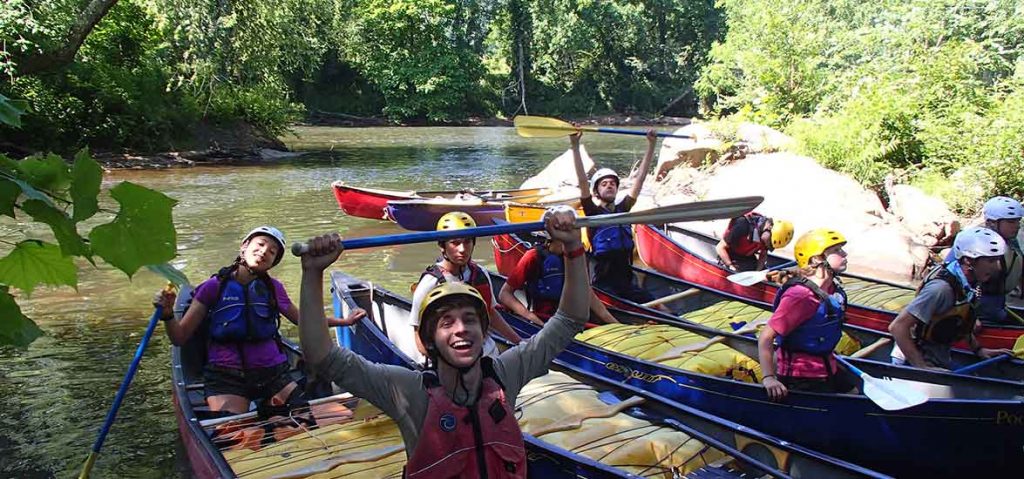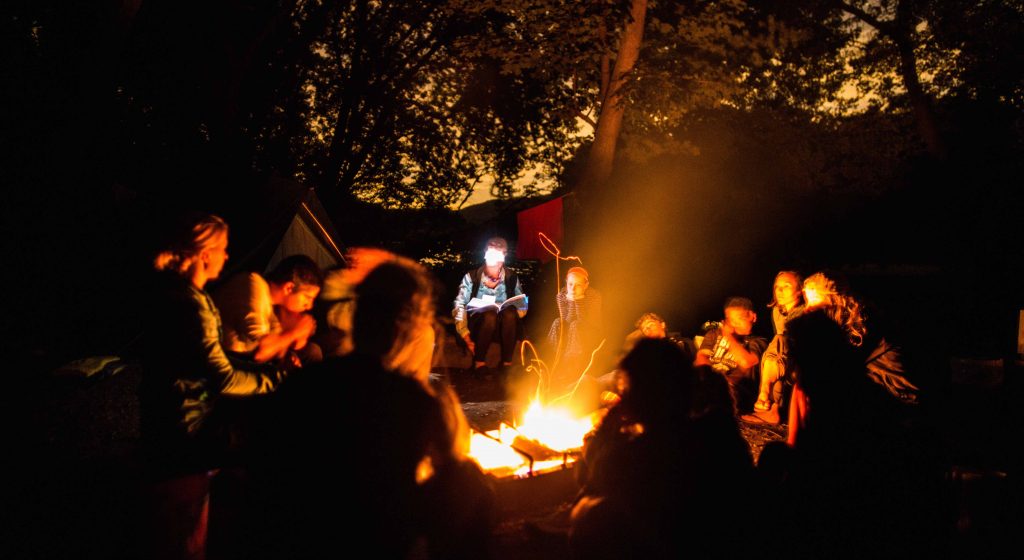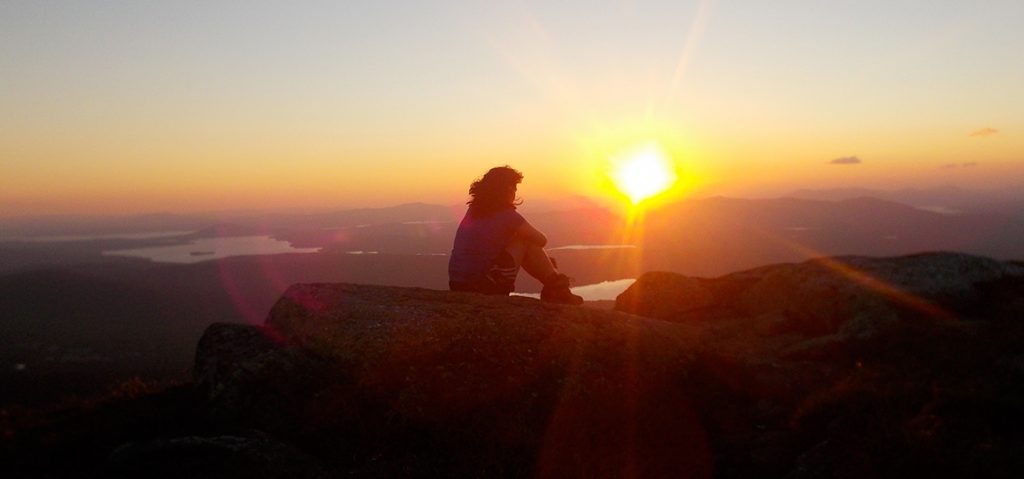In recent years at Outward Bound, teens face a different kind of challenge: turning their phones off for four weeks and leaving them behind. In some ways, it’s a challenge of the expedition that we tackle like any other—whether it’s living with strangers, eating new foods or getting up and traveling ten miles without the aid of machines. One foot in front of the other, one day at a time, we break obstacles into manageable pieces, work together, celebrate our accomplishments and stay present. Before we know it, it’s done. We’re at the top of the mountain, the evening’s campsite or the end of the trip.

Another challenge, and benefit, for teens on an Outward Bound expedition: time away from their phones.
Students claim to feel phantom phone vibrations in their pockets, but their day-to-day is filled with adventure and tangible accomplishments like climbing that mountain or building a roaring fire on a rainy day. They never completely forget about their cyber worlds, but they often miss them less than they expect.
One student of mine stands in for many others. He spent the first hour of the trip isolating himself, on his phone, listening to music while waiting for other students to arrive, and then sitting quietly once everyone turned their phones off and stowed them safely in their luggage. On the last night around the campfire, the team talked about adding each other on social media, the piles of messages and notifications they would return to, who they would text first, their damaged statistics from neglecting their accounts for so many days. This student spoke up and said, “You have to admit, it was kind of nice not having our phones out here. Don’t you wish just a little bit that they wouldn’t give them back? I mean, I wouldn’t have talked to any of you, if I’d had my phone.”

Instructors are not surprised to hear teens express their appreciation for a technology detox while on their expedition.
His honesty is a sentiment that as an Instructor I hear expressed quite often by teens, who are in part shocked to be hearing such words from their own mouths. For many of these youth, this is the first long break they’ve had from technology in years. Many have the self-awareness to recognize how their break from technology allowed them to be present for their team, and that they also didn’t miss as much as they expected online. Most students, if not all, also lack the self-control to do anything other than spend the entire van ride back to the airport on their phones. In this way, teens’ responses to technology provide a window into other aspects of their behavior. Teens’ self-awareness is growing, and they are at times quite articulate about the benefits and consequences of their behavior. They yearn for the freedoms, and some of the responsibilities, of adulthood. Yet their ability to follow through and provide the consistent action to back up their words often falls short, revealing a still-strong reaction to impulses, short-term gratification and peer influence. Which as we know, have been characteristics of adolescence long before the first smartphone came on the scene.
As your teen prepares for their expedition, spend some time listening to their concerns about leaving behind their phones and devices. Though it may not be something you had to worry about as a teen, recognize that their worries feel real to them, and they may be able to describe a world of social pressure and ramifications that feels foreign to you. Validate that what they’re being asked to do is difficult. Consider supporting them by also taking a break from your technology—each evening or on weekends. In the end, know that the time on a course without technology is not the focus, just a side effect. Being away from their phone will likely not be the hardest aspect of the trip for your teen. Choosing to invest time in oneself, while truly unplugged, allows you to learn what you can and can’t live without, revealing more of what’s most important to you in your life.

Before an expedition, it is likely your teen will feel nervous about being away from their devices. Listen to their concerns, and think about offering to go on a technology detox too.
About the Author
Renee Igo was an Outward Bound student at age 15, and has been instructing wilderness expeditions for the Voyageur Outward Bound School for the past eight years. When not instructing, she holds a variety of other teaching positions and raises sheep in Maine.
OTHER POSTS YOU MAY LIKE
Read More
Read More
Read More




